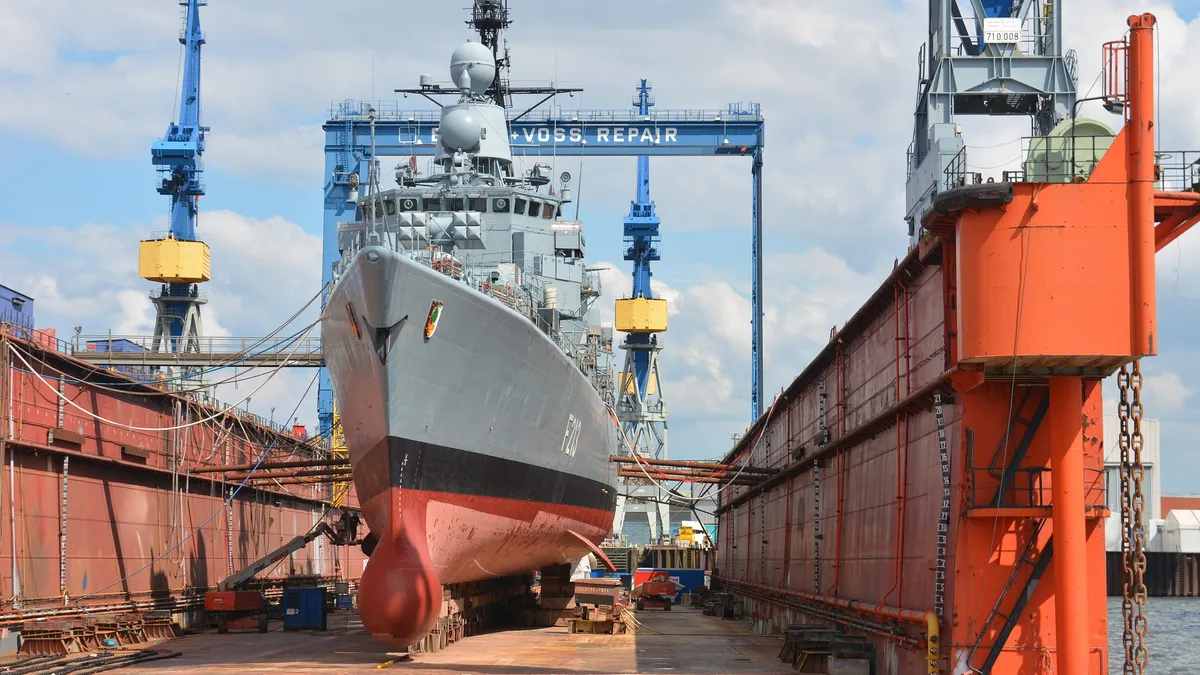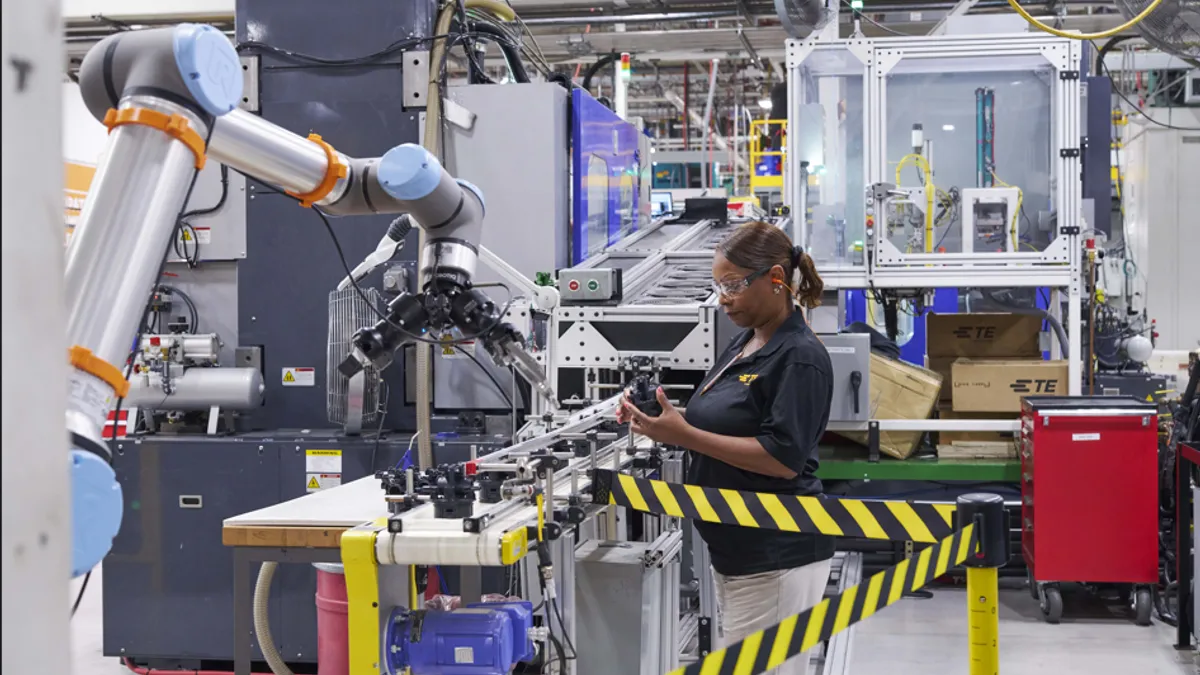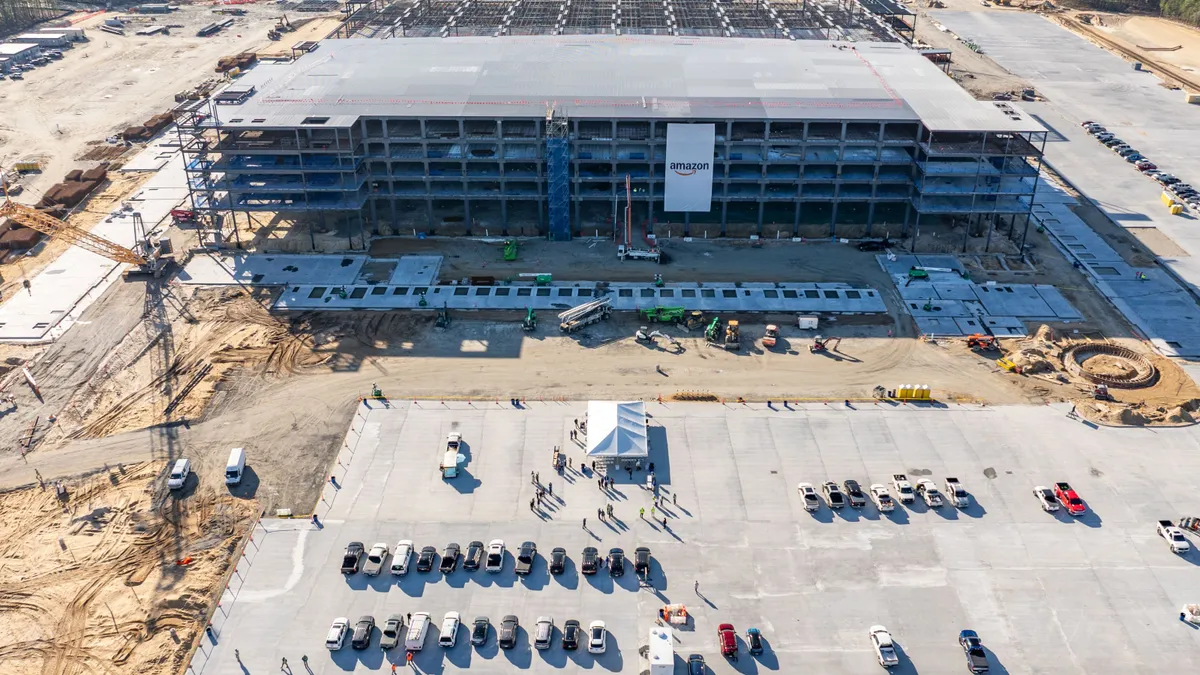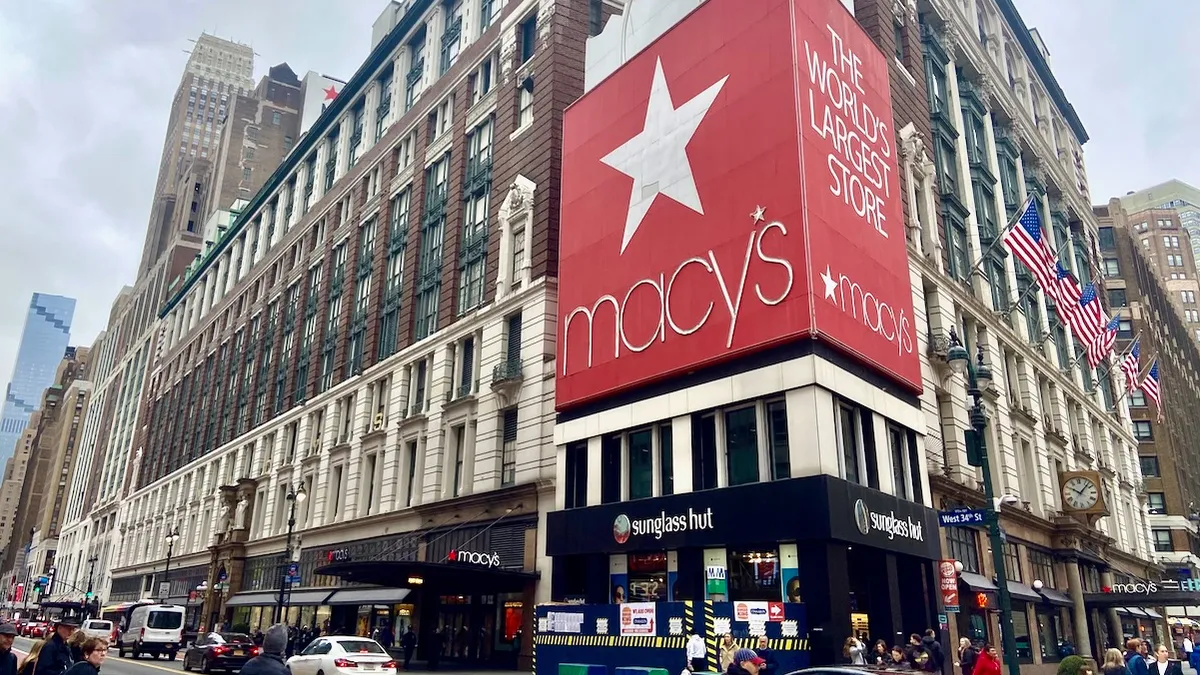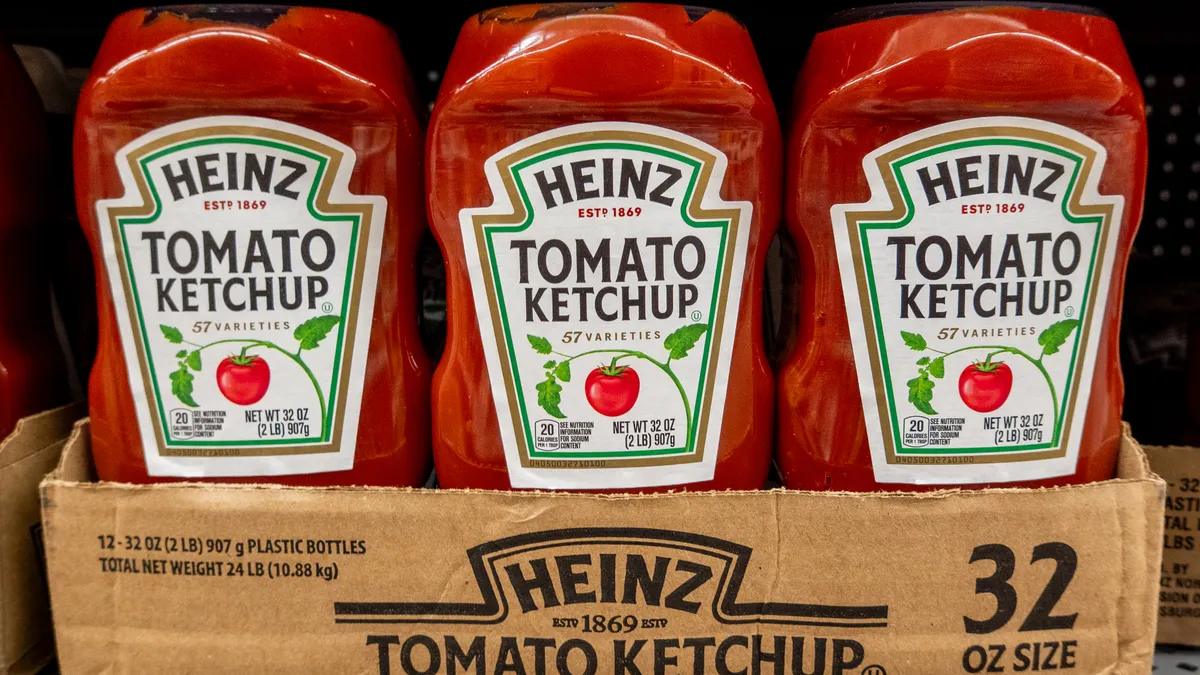Supply chains are constantly changing as new rules, technologies, resources and market trends transform operations. Here's a skim of the week's indexes, technology announcements, expansions and M&As from around the web.
In Case You Missed It
- Hurricane Matthew is threatening to devastate the East Coast.
- Lack of agility caused H&M to post a 9% profit drop last quarter.
- Big Data and the talent crisis were hot topics at APICS and CSCMP.
Market Snapshot
The shipping industry's slowdown is beginning to affect jobs: reports indicate Hanjin is laying off 180 people in the U.S., while Maersk announced a 25% reduction of its onshore workforce.
August marked the third consecutive increase in air cargo freight, according to a WorldACD analysis, although the growth remained slow at 2.3%. But slow growth is better than the alternative, as other modes of transport know: U.S. rail traffic fell again by 6.9%, while class 8 truck orders reached their lowest point since 2009.
Other sectors have more reasons to be hopeful, though.
Despite a dip in August, last month continued an 88-month trend of overall economic growth for the manufacturing sector, according to the September 2016 Manufacturing ISM Report on Business. New orders, production, and employment rates returned to growth, while inventories contracted for the 15th month.
Similarly, consumer spending may have been flat in August but peak season is coming. Retail sales are expected to grow 3.6% this year, reaching $6.55B, according to the National Retail Federation.
Nationally, the U.S. Department of Commerce upgraded last quarter's GDP figure to a 1.4% gain, which marks steady but slow growth. Meanwhile, the trade deficit expanded by 3% in August, according to The Wall Street Journal.
Overall, August was a bad month but high spending in Q3 and Q4 should improve the nation's economic projections.
Technically Speaking
Ten robots who can listen, speak, learn and walk are now working as customs officers at three ports in China's Guangdong province. The robots, named Xiao Hai, are equipped with face recognition technology to "detect suspicious people," according to a press release.
Farm products are hardly cheap in the island nation of Japan, but robot-run mega-farms may soon change that dynamic. A Bloomberg report overviews how automation is making milk production more feasible as import costs remain high.
Frozen yogurt may soon be reaching your doorstep by air thanks to Orange Leaf's" Project Flying Orange Unicorn," which completed its first drone delivery this week, Food Logistics reports.
Big Ocean Data made a splash this week when Maersk contracted the company to provide tracking and security services for its 630 ships. The deal revealed the rising importance of visibility and mobile integration for large companies.
Speaking of tracking, Kenco and Locatible are partnering to develop tracking services for lift trucks, inventory, and trailers in yards and warehouses.
The transport world saw two new technologies launch this week: Johanson Transportation Service announced its new cloud-based TMS service FreightOptixx; and Rand McNally announced a new ELD and fleet-management device with mobile-integration.
Lastly, Uber's autonomous vehicle tests in Pittsburgh have hardly gone without a scrape: videos and articles show the technology committing various traffic violations and causing minor accidents. Could this spell increased regulation for the innovative form of transport?
Breaking Ground
Three logistics startups will move to Chattanooga, TN after completing, sparking speculation the Midwestern city may quickly become a hub for new companies.
In less than a year FedEx will open a 240,000 square-foot distribution center in Miami Township, OH to better service the region's distribution centers.
Such new projects are not always welcome, however. Citizens of Murfreesboro, NJ expressed traffic, labor, and environmental concerns at a public hearing regarding a new FedEx hub in the city. The company noted 750 vehicles would travel to the facility on a daily basis, and its commitment to traffic-easing projects in the city.
Vehicle manufacturers in GA are likely rejoicing as the Port of Brunswick announced a 100-acre expansion of its auto terminal on Wednesday.
Meanwhile in the shipping world, the City of Norfolk, VA is offering Maersk $350,000 over five years to keep its headquarters within city limits. The Virginian Pilot reports the money would be sourced from the city's cigarette tax.
Clearly, ports are good for business. Industrial developer CenterPoint recently bought a 116,550 square-foot warehouse near the Ports of Long Beach and Los Angeles, seeking to take advantage of the nearby intermodal yards.
Elsewhere, Ports America announced a joint venture with Cooper/T. Smith to manage the two companies' operations at the Port of Houston, under Cooper/Ports America.
Mergers & Analysis
C.H. Robinson completed its acquisition of Australia-based APC Logistics, expanding its global reach to 37 countries. The deal was announced late August.
DHL Supply Chain expanded its services in Italy with the acquisition of MIT Safetrans, which operated 20 facilities in the country. DHL now counts on roughly 60 facilities and employs about 800 people in Italy.
Meanwhile, in Canada, the Chamber of Marine Commerce merged with the Canadian Shipowners Association to improve their regulatory advocacy efforts, American Shipper reports.
US Foods purchased New York Italian-foods distributor Jeraci Foods for an undisclosed amount.
In other news: Lenovo signed Talent for its supply chain solutions; Epicor will provide ERP solutions to Dot-It restaurant fulfillment; Logistics firm Aramex and Austrialia Post entered a joint venture to manage the Post's e-commerce business.



